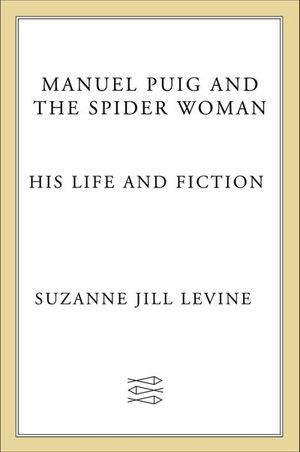Manuel Puig and the Spider Woman
Published by Farrar, Straus and Giroux
Manuel Puig & The Spider Woman tells the life story of the innovative and flamboyant novelist and playwright himself. Suzanne Jill Levine, his principal English translator, draws upon years of friendship as well as copious research and interviews in her remarkable book, the first biography of the inimitable writer.
Manuel Puig (1932-1990), Argentinian author of Kiss of the Spider Woman and pioneer of high camp, stands alone in the pantheon of contemporary Latin American literature. Strongly influenced by Hollywood films of the thirties and forties, his many-layered novels and plays integrate serious fiction and popular culture, mixing political and sexual themes with B-movie scenarios. When his first two novels were published in the late 1960s, they delighted the public but were dismissed as frivolous by the leftist intellectuals of the Boom; his third novel was banned by the Peronist government for irreverence. His influence was already felt, though-even by writers who had dismissed him-and by the time the film version of Kiss of the Spider Woman became a worldwide hit, he was a renowned literary figure.
Puig's way of life was as unconventional as his fiction: he spoke of himself in the female form in Spanish, renamed his friends for his favorite movie stars, referred to his young male devotees as "daughters," and, as a perennial expatriate, lived (often with his mother) everywhere from Rome to Rio de Janeiro.
BUY NOW FROM
COMMUNITY REVIEWS

